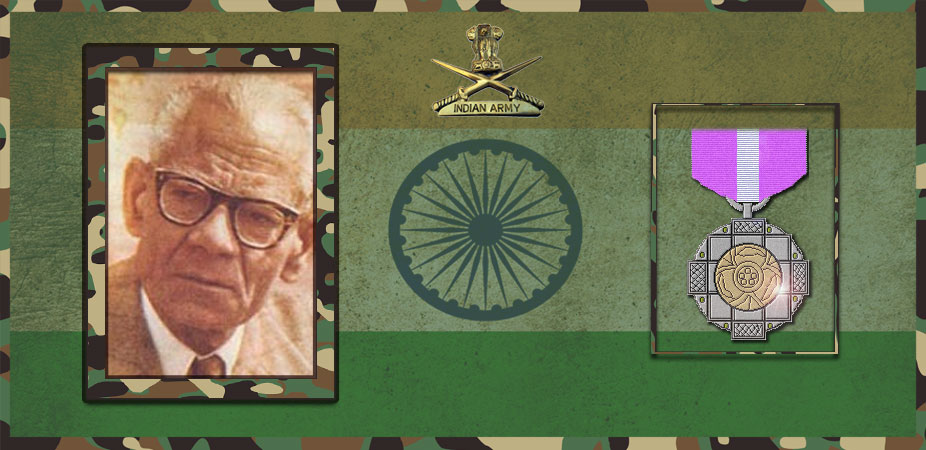Let's salute to our Indian Army together, We are proud to be Indian.
Let's salute to our Indian Army together, We are proud to be Indian.

Yashpal (3 December 1903 – 26 December 1976) was a Hindi-language author who is sometimes considered to be the most gifted since Premchand. A political commentator and a socialist who had a particular concern for the welfare of the poor and disadvantaged, he wrote in a range of genres, including essays, novels and short stories, as well as a play, two travel books and an autobiography. He won the Hindi-language Sahitya Akademi Award for his novel, Meri Teri Uski Baat in 1976 and was also a recipient of the Padma Bhushan.
Yashpal’s writings form an extension to his earlier life as a revolutionary in the cause of the Indian independence movemen
Yashpal was born in 1903 at a village situated in the Kangra Hills. His mother was poor and had sole responsibility for raising her two sons. He grew up in an era when claims to independence from the British Raj were increasingly heard and with a mother who was a keen supporter of Arya Samaj. He attended an Arya Samaj gurukul in Hardwar on a “freeship” basis, due to the family’s poverty. Such gurukuls were considered by the British to be seditious schools because they fostered pride in Hindu culture and Indian achievements, encouraging the notion that Aryan Indians would overthrow what they regarded as their temporary subjugation to the British. Yashpal later said that during his schooldays he had daydreamed of a time when Indians would reverse the situation to the point of governing their colonial masters in Britain itself. He was bullied by his fellow pupils at the gurukul on account of his poverty, and he left the school when he suffered a prolonged attack of dysentery.
Reunited with his mother in Lahore, Yashpal attended middle school there before progressing to high school in Ferozepur Cantonment, where the family had subsequently moved. He found the urban environment and schooling to be more to his taste and he finished first in class in his matriculation exam.
Yashpal had been a follower of Mahatma Gandhi’s Congress organisation from the age of 17, while still in high school. He toured villages to promote Gandhi’s message of non-cooperation among peasant people but they appeared disinterested and he realised that there was nothing in the Congress programme that addressed issues that affected them. It was after one such tour that he received his matriculation results, the success in which entitled him to a scholarship at a government college. He declined that award in favour of having to fund himself through studies at National College, Lahore, an institution that had been established by the Arya Samajist and Congress activist Lala Lajpat Rai with the aim of promoting social service and providing a quality education to Indians who did not want to be taught in British-administered colleges
It was after Yashpal’s release from prison that he began to write, seeing literature as a vehicle for righting the wrongs that he perceived to exist in Indian society. Marxism became his preferred ideology; he saw the Communist Party of India as the successor to the HSRA, although he joined neither that nor any other political party.
Yashpal had been banned from entering Punjab following his release from prison and so settled with his wife in Lucknow. His first work, Pinjre ki Uran (Flight from the Cage)(1939), was a notable success. He worked briefly for Karmayogi, a Hindi-language magazine, before establishing his own magazine, Viplav (Cataclysm), which was published in Hindi and Urdu until its closure in 1941. The closure became necessary because the government, which considered Viplav to be seditious, demanded a 13,000 rupee security; the magazine was restarted after India gained independence in 1947. In 1941, he established a publishing house called Viplava Karyalaya and, in 1944, a printing press called Sathi Press.
Yashpal’s next books – Dada Kamred (Comrade, The Big Brother) (1941) and Deshdrohi (Traitor) (1943) – were both fictional works that had the Communist Party as a central theme. Other essays, novels and short stories were published between that time and Indian independence and these added to the impression that he was an agitator. That impression caused his arrest in 1949 and jailing by order of the Government of Uttar Pradesh, which was at that time arresting people with communist sympathies due to an illegal railway strike that had Communist Party support. A public outcry at his arrest ensued and the government had to back down in a humiliating manner, although they did succeed in banning him from Lucknow for a period of six months and thus caused the final closure of Viplav.
His autobiography, Sinhavalokan (A Lion’s Eye-View or A Backward Glance), was published in three volumes between 1951-55 and is recognised for its detailed account of the armed struggle for independence in India as well as for information on his own early life. He was writing a fourth volume of this autobiography at the time of his death on 26 December 1976.
Yashpal was awarded the Padma Bhushan in 1970.